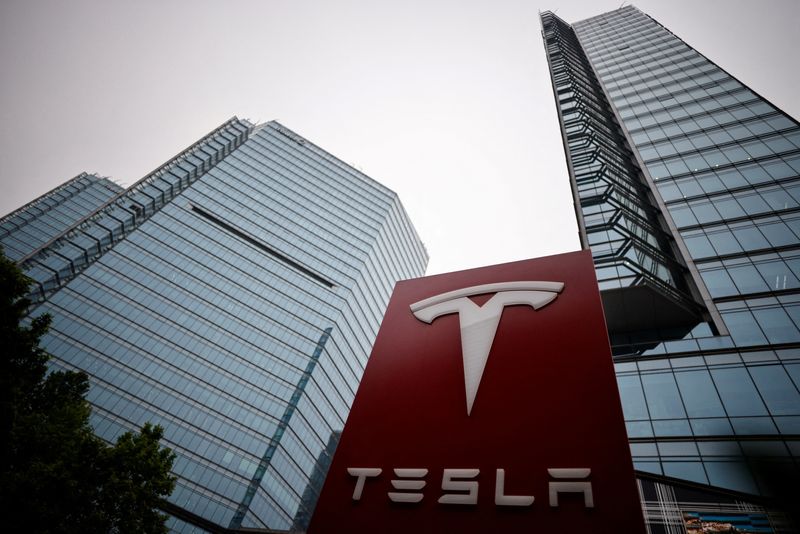By Tom Hals
WILMINGTON, Delaware (Reuters) -Tesla Inc urged a Delaware judge on Friday to reject $230 million in legal fees requested by a team of shareholder attorneys who won a settlement in a dispute over director pay, and the company recommended a fee of $64 million instead.
The maker of electric vehicles called the fee request an "unwarranted windfall" that works out to an hourly rate of $10,690, among the highest fee requests ever in Delaware's Court of Chancery, a key venue for shareholder lawsuits.
Kathaleen McCormick (NYSE:MKC), chief judge on the court, heard about two hours of arguments over the fee and over a request to approve the settlement. She did not say when she would rule.
The attorneys represented a Detroit police union pension plan that sued Tesla (NASDAQ:TSLA)'s directors for excessive compensation during 2017 to 2020. Nearly all of the directors' compensation comprised stock options and they only got paid if the stock rose. In recent years it swelled 10-fold.
Elon Musk's $56 billion in compensation as Tesla's chief executive was not part of this lawsuit. It is being challenged separately.
The 2020 lawsuit settled in July with the directors agreeing to return to Tesla $735 million as part of a $919 million agreement. The directors said their pay was fair and they only settled to remove the risk of litigation.
The attorneys want as their fee 25% of the settlement with the 12 directors, who include James Murdoch, son of media mogul Rupert Murdoch, and Oracle (NYSE:ORCL) co-founder Larry Ellison.
The case was brought as a so-called derivative lawsuit which benefits the company, rather than shareholders directly.
Tesla's attorney argued the shareholder's attorneys exaggerated the value of the settlement, and by extension their requested fee, by pegging its value to the cost to directors rather than the benefit to the company. Tesla estimated its benefit from the deal was $295 million.
The difference in the two values boils down to the stock options. At the time of the July settlement the options were worth $458 million to the directors.
Tesla said in court papers that the benefit of getting the options back is reversing the accounting cost it recorded when they were issued, which was around $20 million.
Andrew Dupre, one of the shareholder attorneys, said if the options were of so little value to Tesla, the company should turn them over to the shareholder's legal team to exercise as their legal fee, but said the company would not do that.
"It shows the absurdity of their argument," Dupre said. "We would gladly take the money if we could."
Musk is not contributing to the settlement and he did not receive any money for his role on the board, according to a court filing by the plaintiff.
Tesla shareholder Mike Levin objected at the hearing to the settlement because it held the directors liable for damages as group, rather than specifying the allocation of the damages for each director.

“We don’t want one defendant -- CEO Elon Musk -- to pay any or all of it,” Levin told the court. “That would compromise any independence of the directors.”
Vanessa Lavely, an attorney for the defendants, said Musk was not be paying the settlement although if he chose to reimburse the directors it would have to be disclosed in a securities filing.